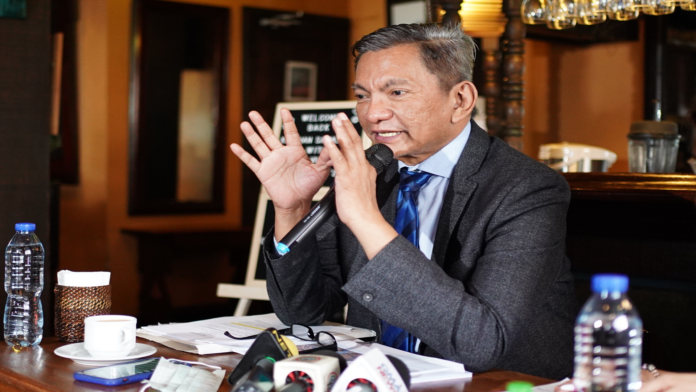A lawmaker on Tuesday expressed support to the request of the Commission on Elections (Comelec) to provide funding for internet voting for registered overseas voters in the 2025 national and local elections.
During the meeting of the House Committee on Suffrage and Electoral Reforms, House Ways and Means Chair Joey Salceda manifested his full support for the Comelec’s move to allow electronic voting for overseas Filipinos by 2025.
“I express my support for the Comelec’s efforts to allow OFW (overseas Filipino worker) voting fully through the internet by 2025, contingent on a system that protects secret voting and can be audited,” Salceda said.
Salceda assured that he will push for a budgetary allocation to finance the conduct of electronic overseas voting.
“Of course, we hope the system is anonymized and encrypted, as is the case in the countries that do it best,” Salceda said.
Salceda also cited that “the only country so far with a nationally pervasive electronic voting system is Estonia.”
Comelec chairman George Garcia confirmed that the Comelec was given a demonstration of Estonia’s voting system weeks ago.
Garcia said it is high time to take advantage of the technological advancements to explore the country’s options for automated voting.
“We should now venture (into) the other modes of voting. And, therefore, during the en banc session, the en banc adopted a policy to proceed the internet voting, and we interpreted the provision of the law, authorizing the Commission on Elections to venture (into) other modes of voting such as internet voting,” he said.
Electronic overseas voting was approved based on existing laws, particularly: Section 16.11 of Republic Act 9189, which allows Comelec to “study the use of electronic mail, internet, or other secured networks in the casting of votes of qualified overseas Filipino voters”; Section 28 of RA 10590: “explore other more efficient, reliable and secure modes or systems, ensuring the secrecy and sanctity of the entire process, whether paper-based, electronic-based or internet-based technology or such other latest technology available, for onsite and remote registration and elections”; and Section 23, RA No. 10590: “determine other alternative modes of voting, thereby allowing the Commission to promulgate, without further legislation from Congress, its own rules and regulations for appropriate implementation of such voting system duly determined by the Commission.” (PNA)
Photo credit: Office of Rep. Joey Salceda


